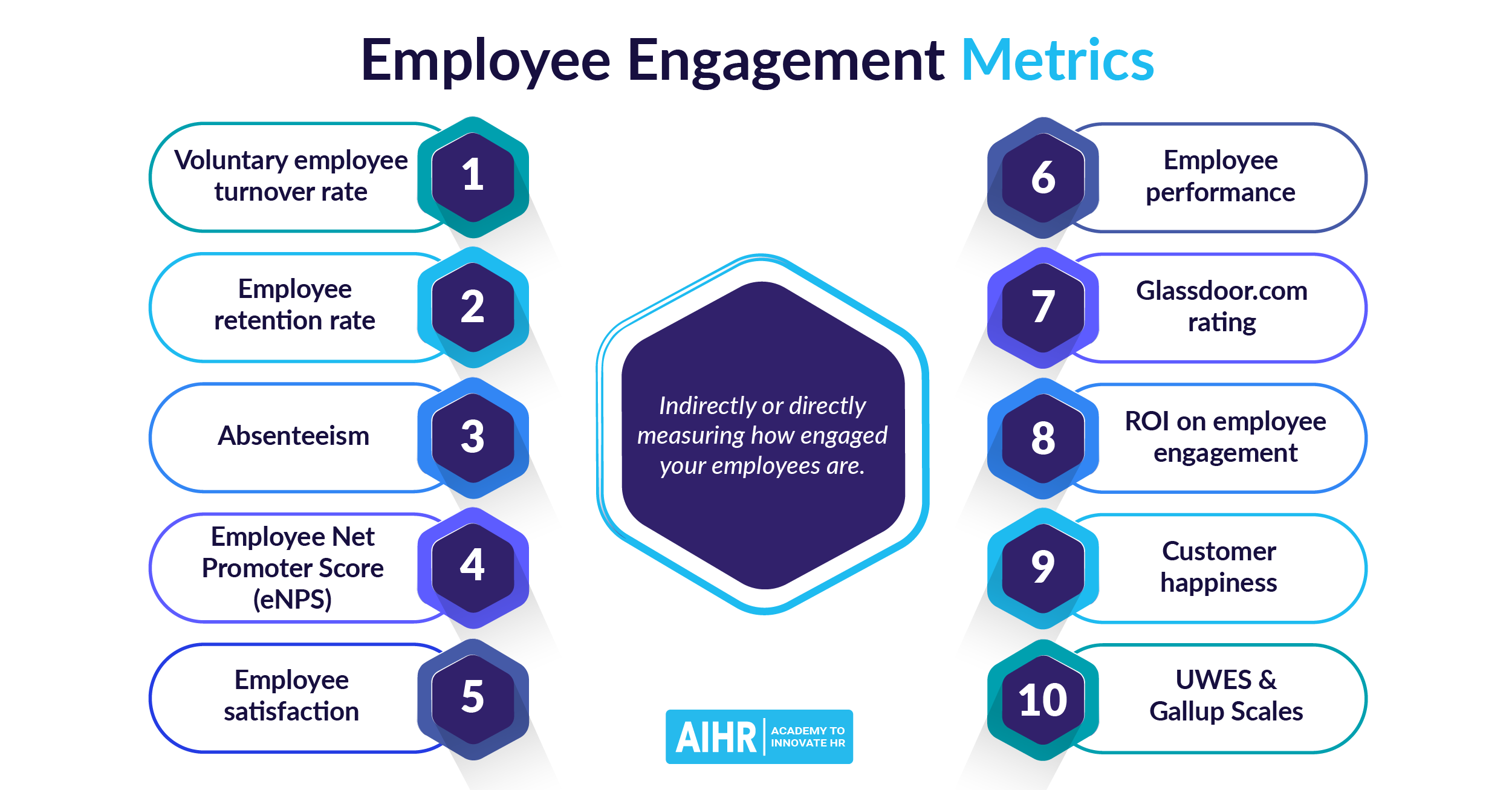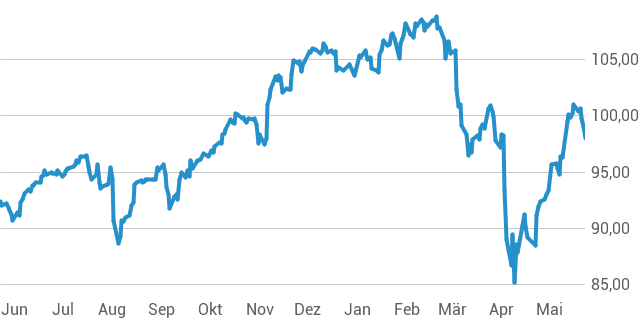The Importance Of Middle Managers: A Key To Employee Engagement And Productivity

Table of Contents
Bridging the Gap: Middle Managers as Communication Hubs
Middle managers act as vital links, facilitating seamless communication between senior management and frontline employees. Effective communication is paramount for clear direction, feedback loops, and overall team cohesion. Poor communication can lead to misunderstandings, decreased morale, and ultimately, reduced productivity. Therefore, the ability of middle managers to effectively manage information flow is critical for organizational success.
-
Relaying company goals and strategies clearly to team members: This ensures everyone is working towards the same objectives and understands their individual contributions to the bigger picture. Using clear, concise language and providing context is key.
-
Gathering employee feedback and relaying it to upper management: This creates a vital two-way communication channel, allowing senior management to understand the challenges and perspectives of their employees. Middle managers act as a filter, ensuring feedback is constructive and actionable.
-
Ensuring transparent communication regarding changes and updates: Open and honest communication minimizes rumors and anxieties within the team, building trust and confidence in leadership. Regular updates, town halls, and open-door policies are all helpful tools.
-
Fostering open dialogue and constructive feedback within teams: Middle managers should create a safe space for team members to share ideas, concerns, and feedback without fear of reprisal. This fosters innovation and problem-solving.
-
Utilizing various communication channels effectively (e.g., meetings, emails, one-on-ones): Adapting communication styles to different situations and audiences is crucial for effective information dissemination and feedback collection.
Fostering Employee Engagement: Motivation and Development
Highly engaged employees are more productive and committed. Middle managers play a critical role in fostering this engagement through mentorship, coaching, and providing opportunities for professional development. Employee engagement directly impacts retention rates, reducing costly turnover.
-
Recognizing and rewarding employee contributions: Acknowledging achievements, both big and small, boosts morale and demonstrates appreciation. This can be through formal rewards programs or simple verbal praise.
-
Providing regular feedback and constructive criticism: Regular check-ins, performance reviews, and ongoing feedback help employees understand their strengths and areas for improvement, fostering growth and development.
-
Identifying employee strengths and weaknesses: This allows middle managers to assign tasks effectively, leverage individual talents, and provide targeted support for development.
-
Creating a supportive and inclusive work environment: A positive and respectful workplace fosters collaboration and psychological safety, enabling employees to thrive.
-
Offering opportunities for training and skill development: Investing in employee growth demonstrates a commitment to their future and enhances their job satisfaction.
-
Implementing effective performance management strategies: This involves setting clear expectations, providing regular feedback, and addressing performance issues promptly and fairly.
Driving Productivity: Goal Setting and Performance Management
Middle managers are responsible for translating organizational goals into actionable plans for their teams. They oversee progress, manage resources, and ensure deadlines are met efficiently. Effective performance management is vital for maximizing team productivity.
-
Setting clear and achievable team goals: Goals should be specific, measurable, achievable, relevant, and time-bound (SMART). This provides clear direction and motivation.
-
Delegating tasks effectively and empowering team members: Empowering team members fosters ownership and responsibility, leading to increased motivation and productivity.
-
Monitoring team progress and identifying potential roadblocks: Proactive monitoring allows middle managers to address issues before they escalate, preventing delays and ensuring projects stay on track.
-
Implementing strategies to improve team efficiency: This might involve streamlining processes, utilizing project management tools, or improving communication workflows.
-
Holding team members accountable for their performance: Fair and consistent accountability ensures everyone contributes their share and maintains high standards.
-
Utilizing project management tools and techniques: Tools such as Gantt charts, Kanban boards, and project management software can significantly improve team efficiency and organization.
Cultivating a Positive Work Environment: Team Building and Leadership
Middle managers are often the first line of leadership, shaping the team culture and fostering a positive work environment. This involves building strong team relationships, resolving conflicts, and promoting collaboration. A positive work environment directly correlates to higher employee morale and retention.
-
Building strong relationships with team members: Investing time in getting to know team members on a personal level builds trust and rapport.
-
Fostering a collaborative and supportive team environment: Encouraging teamwork, open communication, and mutual respect creates a positive and productive atmosphere.
-
Effectively resolving conflicts and addressing disagreements: Addressing conflicts promptly and fairly prevents escalation and maintains a harmonious work environment.
-
Recognizing and celebrating team accomplishments: Celebrating successes, both big and small, reinforces positive behaviors and builds team morale.
-
Promoting a culture of open communication and trust: This allows for the free flow of ideas, feedback, and concerns, fostering a sense of psychological safety.
-
Demonstrating strong leadership qualities, including emotional intelligence: Effective leaders are empathetic, understanding, and supportive, creating a positive and inclusive environment.
Conclusion
The role of middle managers is undeniably crucial for driving employee engagement and boosting productivity. By acting as effective communicators, motivators, and leaders, middle managers bridge the gap between senior management and frontline employees, fostering a productive and positive work environment. Investing in the development and support of middle managers is an investment in the overall success of your organization. Prioritize the development of strong middle management to unlock the full potential of your workforce and significantly improve your company's performance. Don't underestimate the importance of effective middle managers – they are a key driver of organizational success and improved employee engagement and productivity. Invest in your middle management today!

Featured Posts
-
 Naibolee Tochnye Goroskopy I Predskazaniya
May 24, 2025
Naibolee Tochnye Goroskopy I Predskazaniya
May 24, 2025 -
 Amundi Msci World Ii Ucits Etf Usd Hedged Dist Nav Tracking And Analysis
May 24, 2025
Amundi Msci World Ii Ucits Etf Usd Hedged Dist Nav Tracking And Analysis
May 24, 2025 -
 The Practicalities Of An Escape To The Country Things To Consider
May 24, 2025
The Practicalities Of An Escape To The Country Things To Consider
May 24, 2025 -
 Glastonbury 2025 Full Lineup Featuring Olivia Rodrigo And The 1975
May 24, 2025
Glastonbury 2025 Full Lineup Featuring Olivia Rodrigo And The 1975
May 24, 2025 -
 Your Country Escape Awaits Practical Advice And Inspiration
May 24, 2025
Your Country Escape Awaits Practical Advice And Inspiration
May 24, 2025
Latest Posts
-
 Pobeda Aleksandrovoy Otchet O Matche Protiv Samsonovoy V Shtutgarte
May 24, 2025
Pobeda Aleksandrovoy Otchet O Matche Protiv Samsonovoy V Shtutgarte
May 24, 2025 -
 Aleksandrova Samsonova Itogi Pervogo Kruga Turnira V Shtutgarte
May 24, 2025
Aleksandrova Samsonova Itogi Pervogo Kruga Turnira V Shtutgarte
May 24, 2025 -
 Shtutgart Aleksandrova Obygrala Samsonovu V Pervom Kruge
May 24, 2025
Shtutgart Aleksandrova Obygrala Samsonovu V Pervom Kruge
May 24, 2025 -
 Samsonova Ustupaet Aleksandrovoy V Pervom Kruge Shtutgartskogo Tennisnogo Turnira
May 24, 2025
Samsonova Ustupaet Aleksandrovoy V Pervom Kruge Shtutgartskogo Tennisnogo Turnira
May 24, 2025 -
 Match Rybakinoy Na Turnire Za 4 Milliarda Smotret Onlayn
May 24, 2025
Match Rybakinoy Na Turnire Za 4 Milliarda Smotret Onlayn
May 24, 2025
